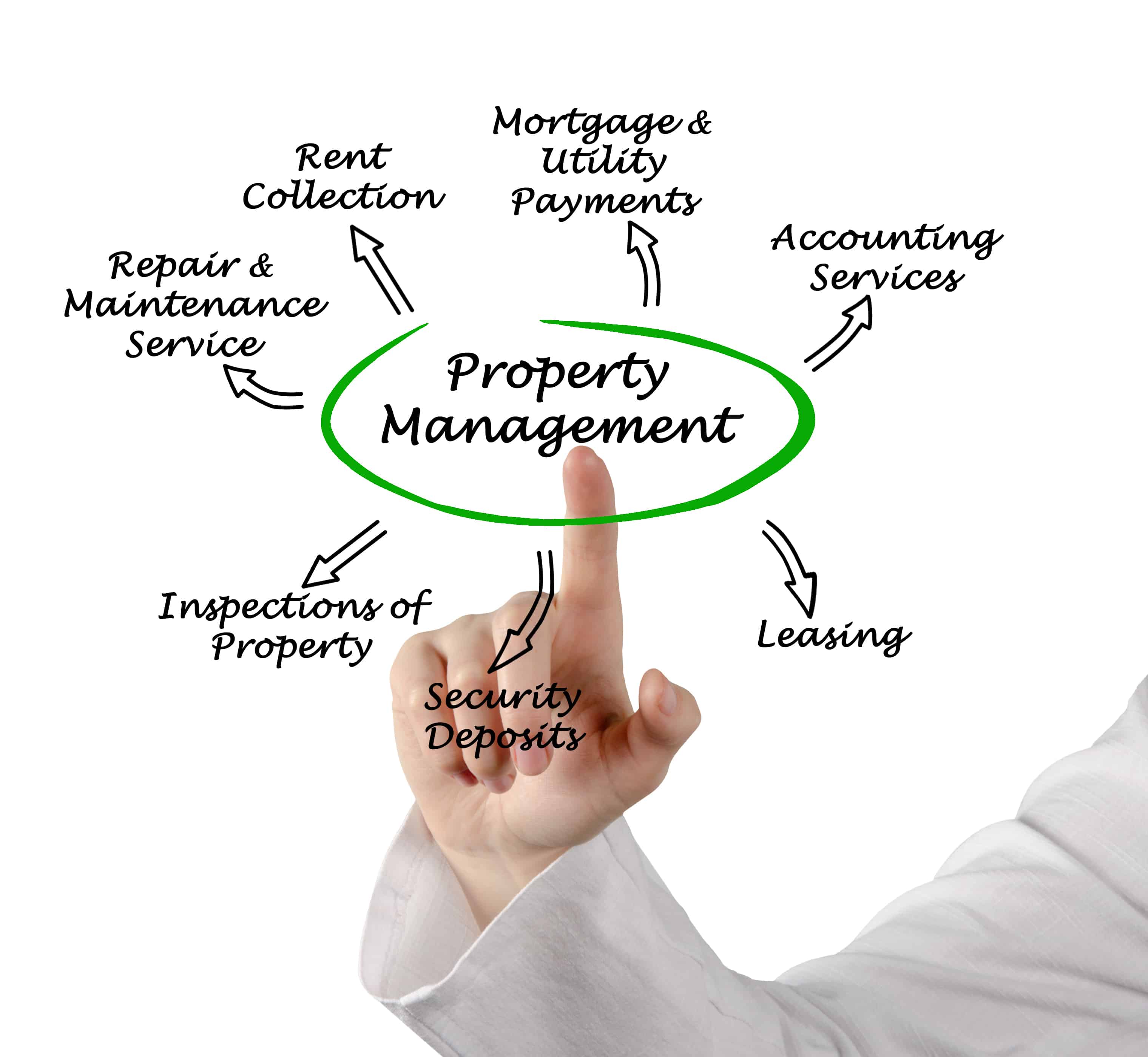Property Management Basics For First-Time Landlords
Make sure you comply with all legal requirements to protect yourself and your tenants. Let's take a look at some property management basics for first-time landlords.
Author:Darren McphersonReviewer:Camilo WoodMar 07, 20243.7K Shares109.1K Views

As a landlord, it's crucial to familiarize yourself with the landlord-tenant laws and regulations in your jurisdiction. These laws govern various aspects of the landlord-tenant relationship, including lease agreements, security deposits, rent increases, eviction procedures, and property maintenance standards. Make sure you comply with all legal requirements to protect yourself and your tenants. Let's take a look at some property management basics for first-time landlords.
Screening Tenants
Finding reliable tenants is essential for a successful rental property investment. Develop a thorough screening process to evaluate prospective tenants' credit history, rental history, employment status, and income level. Conducting background and reference checks can help you identify responsible tenants who are likely to pay rent on time and take good care of your property.
Creating Clear Lease Agreements
A comprehensive lease agreement is essential for outlining the terms and conditions of the rental arrangement. Specify details such as the rental period, rent amount and due date, security deposit amount, pet policy, maintenance responsibilities, and rules regarding property use. Ensure that both you and your tenants understand and agree to the lease terms before signing.
Maintaining The Property
Regular maintenance and timely repairs are essential for preserving the value of your rental property and keeping tenants satisfied. Schedule routine inspections to identify any maintenance issues or safety hazards, such as plumbing leaks, electrical problems, or structural damage. Address maintenance requests promptly and ensure that the property meets all health and safety standards.
Handling Finances
Managing the financial aspects of your rental property requires careful budgeting and record-keeping. Keep track of rental income, expenses, and taxes using accounting software or a spreadsheet. Establish a system for collecting rent payments, whether it's through online payments, checks, or other methods. Set aside funds for unexpected expenses and plan for regular property-related costs, such as property taxes, insurance premiums, and maintenance expenses.
Communicating Effectively With Tenants
Open and transparent communication is key to maintaining a positive landlord-tenant relationship. Be responsive to your tenants' inquiries, concerns, and maintenance requests. Provide clear channels of communication, such as a designated email address or phone number, and establish expectations for how and when tenants should contact you.
Handling Tenant Issues And Disputes
Despite your best efforts, conflicts and disputes may arise between you and your tenants. Whether it's a disagreement over lease terms, noise complaints, or maintenance issues, approach conflicts calmly and professionally. Follow the appropriate legal procedures for resolving disputes, such as providing written notice for lease violations or initiating eviction proceedings if necessary.
Staying Informed And Educated
The world of property management is constantly evolving, with new laws, regulations, and best practices emerging regularly. Stay informed about industry trends and updates by attending landlord-tenant workshops, joining local landlord associations, or seeking advice from experienced property managers or real estate professionals. Continuously educating yourself will help you navigate challenges and improve your property management skills.
Do's And Don'ts Of Property Management
Property management comes with its own set of challenges and responsibilities. To ensure success and maintain positive landlord-tenant relationships, it's essential to follow certain guidelines. Here are some key dos and don'ts of property management:
Do's
Thorough Tenant Screening
Screen prospective tenants carefully by conducting background checks, verifying employment and income, and checking rental references. This helps ensure that you select reliable tenants who are likely to pay rent on time and take good care of your property.
Communicate Effectively
Establish clear channels of communication with your tenants and respond promptly to their inquiries, concerns, and maintenance requests. Open and transparent communication can help prevent misunderstandings and build trust between you and your tenants.
Maintain The Property Regularly
\Schedule routine maintenance inspections to identify any issues or safety hazards promptly. Address maintenance requests and repairs promptly to keep the property in good condition and prevent minor problems from escalating into major issues.
Adhere To Legal Requirements
Familiarize yourself with landlord-tenant laws and regulations in your jurisdiction and ensure that you comply with all legal requirements. This includes creating comprehensive lease agreements, handling security deposits properly, following eviction procedures if necessary, and maintaining the property to health and safety standards.
Keep Accurate Financial Records
Maintain detailed records of rental income, expenses, and taxes to track the financial performance of your property accurately. Use accounting software or a spreadsheet to organize your finances and stay on top of your budgeting and reporting responsibilities.
Don'ts
Don't Skip Tenant Screening
Avoid skipping or rushing through the tenant screening process, as this can lead to leasing to unreliable tenants who may cause problems or fail to pay rent on time.
Don't Neglect Property Maintenance
Neglecting property maintenance can lead to deteriorating conditions, safety hazards, and tenant dissatisfaction. Prioritize regular maintenance to preserve the value of your property and provide a safe and comfortable living environment for tenants.
Don't Violate Fair Housing Laws
Avoid discriminatory practices when selecting tenants or setting rental terms. Fair housing laws prohibit discrimination based on race, color, religion, national origin, sex, familial status, or disability.
Property Management Basics For First-Time Landlords - FAQs
How Do I Find Tenants For My Rental Property?
To find tenants for your rental property, consider listing it on popular rental websites, social media platforms, and local classified ads. You can also work with a real estate agent or property management company to help you advertise and screen potential tenants.
What Should I Include In A Lease Agreement?
A lease agreement should include essential details such as the rental term, rent amount and due date, security deposit amount, pet policy, maintenance responsibilities, and rules regarding property use. Be sure to clearly outline the rights and responsibilities of both the landlord and tenant to avoid misunderstandings later on.
What Should I Do If My Tenant Doesn't Pay Rent On Time?
If a tenant fails to pay rent on time, communicate with them promptly to understand the reason for the delay. You may need to enforce late fees or initiate eviction proceedings if the tenant continues to be delinquent. Familiarize yourself with the legal procedures for handling rent arrears in your jurisdiction and follow them carefully to protect your rights as a landlord.
Conclusion
Being a successful landlord requires a combination of knowledge, organization, and effective communication. By understanding your legal responsibilities, screening tenants carefully, maintaining the property diligently, handling finances responsibly, communicating effectively with tenants, and staying informed about industry trends, you can lay the groundwork for a successful and rewarding experience as a first-time landlord.
Jump to

Darren Mcpherson
Author
Darren Mcpherson brings over 9 years of experience in politics, business, investing, and banking to his writing. He holds degrees in Economics from Harvard University and Political Science from Stanford University, with certifications in Financial Management.
Renowned for his insightful analyses and strategic awareness, Darren has contributed to reputable publications and served in advisory roles for influential entities.
Outside the boardroom, Darren enjoys playing chess, collecting rare books, attending technology conferences, and mentoring young professionals.
His dedication to excellence and understanding of global finance and governance make him a trusted and authoritative voice in his field.

Camilo Wood
Reviewer
Camilo Wood has over two decades of experience as a writer and journalist, specializing in finance and economics. With a degree in Economics and a background in financial research and analysis, Camilo brings a wealth of knowledge and expertise to his writing.
Throughout his career, Camilo has contributed to numerous publications, covering a wide range of topics such as global economic trends, investment strategies, and market analysis. His articles are recognized for their insightful analysis and clear explanations, making complex financial concepts accessible to readers.
Camilo's experience includes working in roles related to financial reporting, analysis, and commentary, allowing him to provide readers with accurate and trustworthy information. His dedication to journalistic integrity and commitment to delivering high-quality content make him a trusted voice in the fields of finance and journalism.
Latest Articles
Popular Articles
